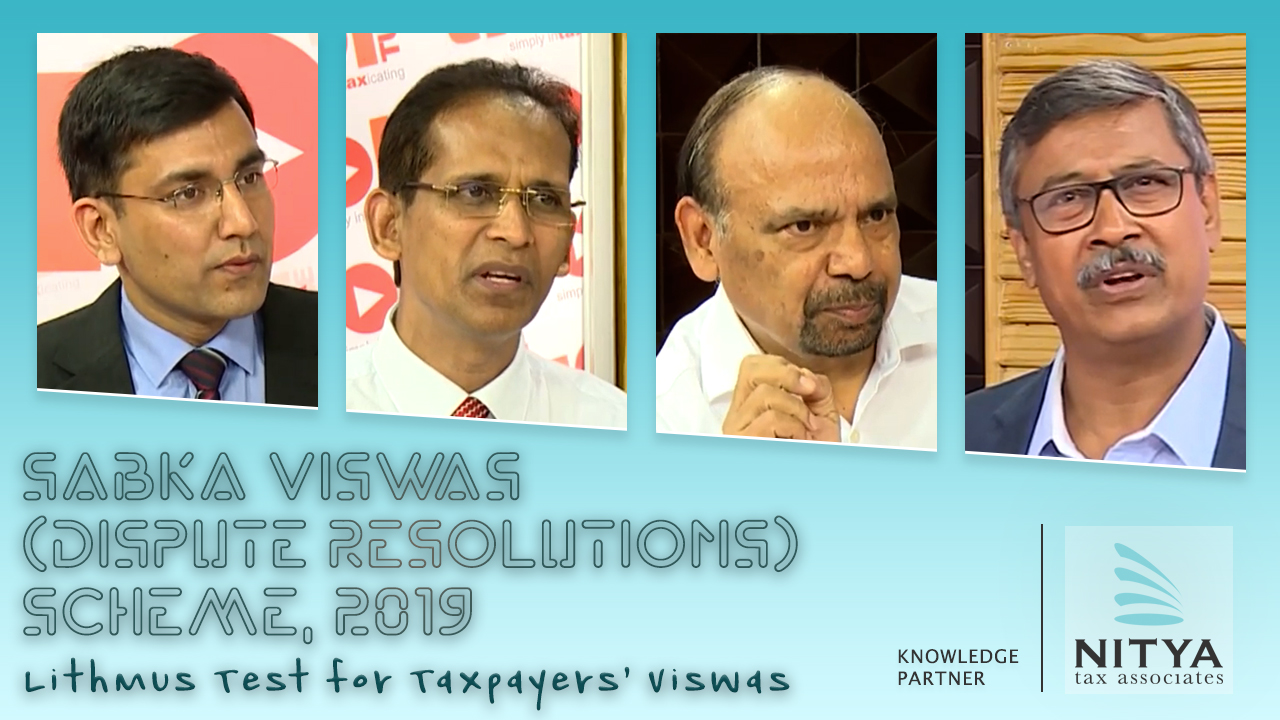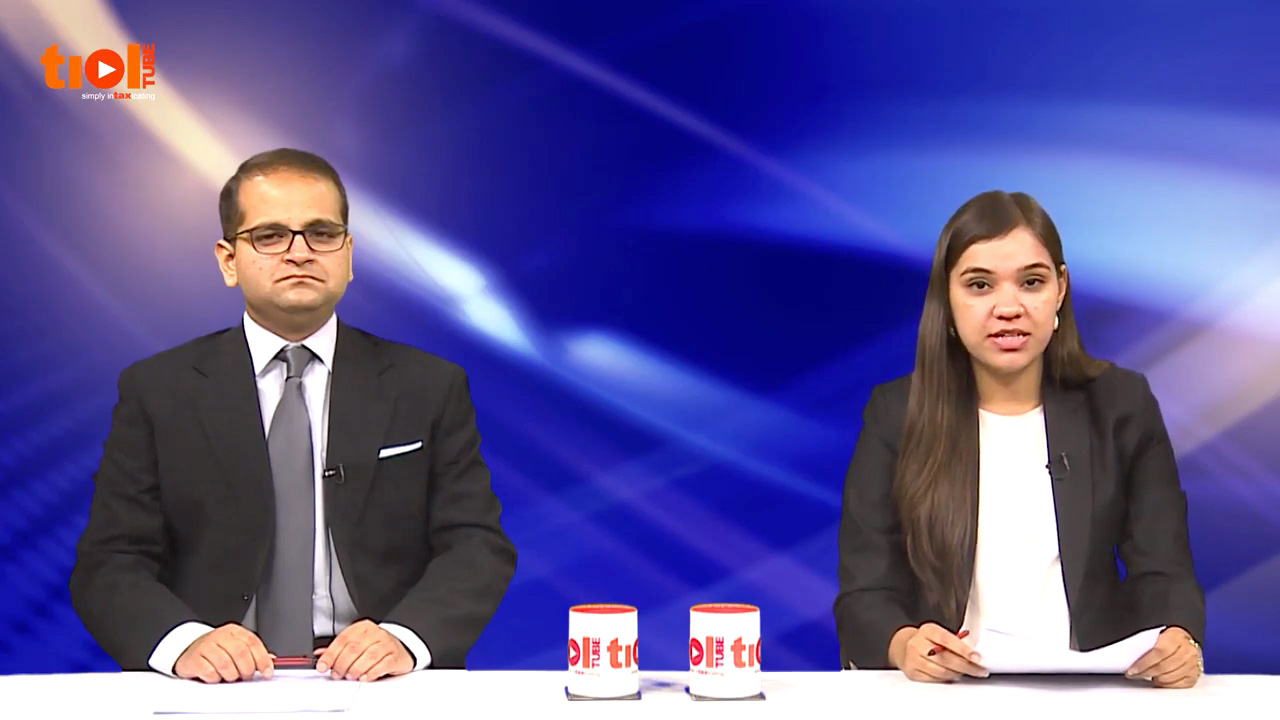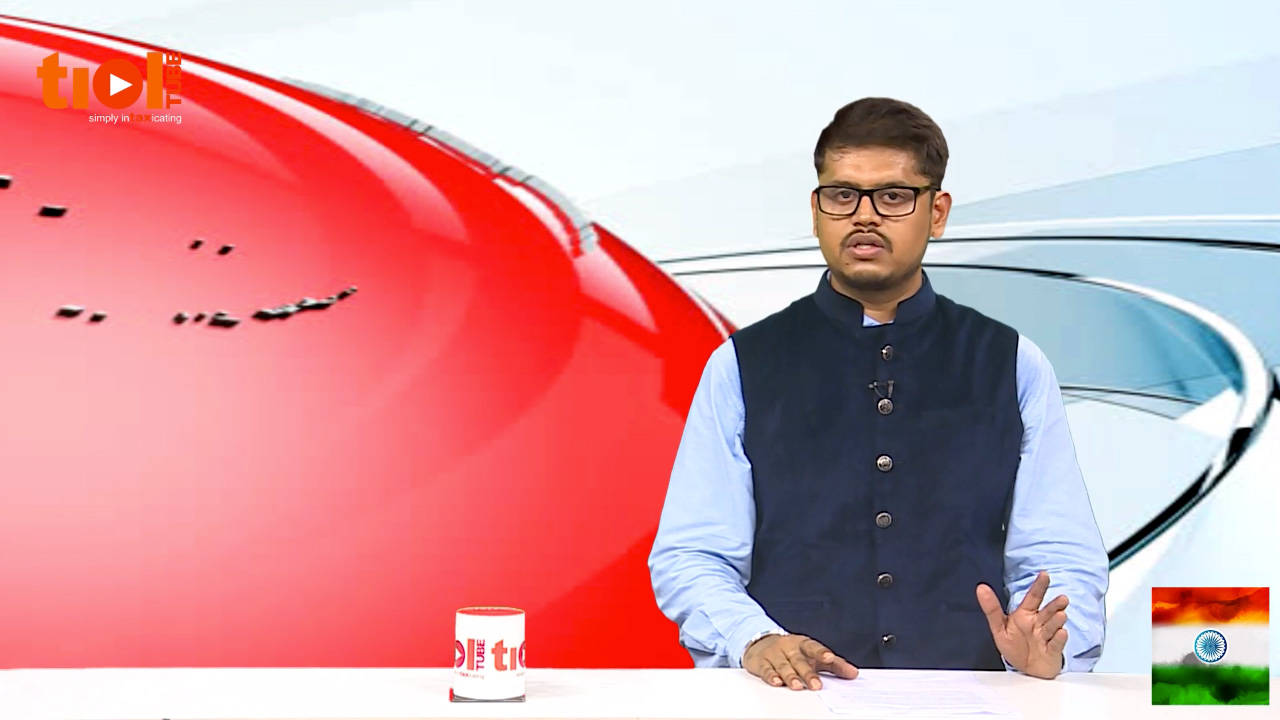|
SERVICE TAX
2019-TIOL-2527-CESTAT-MAD
Sivakasi Municipality Vs CGST & CE
ST - The assessee is challenging the penalties levied and confirmed under Sections 76 and 77 of FA, 1994 - The assessee is incharge of Municipal Administration and Water Distribution for the area covered under jurisdiction of said Municipality - The assessee is a local authority and hence, there can be no issue as to suppression of any facts and that too, with an intent to evade any tax - Though the activity of renting of building is not a statutory function, the building has been rented to earn revenue to perform the statutory functions entrusted on assessee under Article 243W of the Constitution of India - Further, the bona fide belief of assessee can be vouched from Circular 13052/2016/D2 clarifying the exemption available under Sl. No. 39 of Mega Exemption Notfn 25/2012-ST - Further, the taxability of Renting of Immovable Property Services has not attained finality and is still pending before the Larger Bench of Apex Court in the matters of M/s. UTV News Ltd. 2018-TIOL-124-SC-ST and Mineral Area Development Authority & Ors. and therefore, it can be safely assumed that the doubts in mind of assessee as to taxability or otherwise of renting activity was in good faith, which is also due to the fact that there are contrary decisions available and that finally, it has reached the Supreme Court - It is clear with the fact that the main issue of taxability on Renting of Immovable Property itself being under litigation, the ingredients of Section 76 of FA, 1994 can be assumed to be absent, for levying penalty - Therefore, the penalty under Section 76 is set aside - However, the penalty under Section 77 ibid is imposed because of delay/failure in filing the ST-3 return, which is an admitted fact - Therefore, penalty imposed under Section 77 is upheld: CESTAT
- Appeals partly allowed: CHENNAI CESTAT
2019-TIOL-2526-CESTAT-AHM
Neenaben R Doshi Vs CST
ST - The property is jointly owned by two or more persons and same is rented out - The rent is received by individual as per their respective share in the property - The case of department is that the joint owners of one property should be considered as association of person (AOP) and renting share of two or more persons shall be clubbed together - Accordingly, the values of the consideration were exceeding the thresh-hold limit of exemption of 4 lakhs and 8 lakhs as the case may be and the same is liable for service tax - Though in respect of one property, there are joint owner but each joint owner is independent in respect of ownership of respective shares, therefore, whatsoever consideration received by an individual, it is the subject matter of taxation in respect of that individual person either as per income tax or as per service tax - Rental income of other co-joint owner cannot be considered - Therefore, receipt of rental income by every individual is only subject to liability of service tax - If the value is below thresh-hold exemption limit in case of any individual, the same will not be taxable being exempted under Notfn 06/05-ST - At the same time in case of any individual person if the thresh-hold limit exceed in financial year, the same will be liable for service tax - This issue has been considered by Tribunal in case of Sarojben Khushalchand 2017-TIOL-2284-CESTAT-AHM wherein the Tribunal dealt with the absolute identical issue - In view of decision on the identical issue, the issue in hand is no more under dispute, hence settled - Accordingly, the impugned order is set aside: CESTAT
- Appeal allowed: AHMEDABAD CESTAT
CENTRAL EXCISE
2019-TIOL-2533-CESTAT-MAD
Greaves Cotton Ltd Vs CGST & CE
CX - The assessee-company manufactures Construction and Mining equipment - It availed Cenvat credit of service tax paid on input services - Upon audit, it was noticed that the assessee availed ineligible credit of service tax paid on sales commission to their sales agents - The Revenue opined that such credit was not eligible as such services were not directly or indirectly related to the manufacture of final product - SCN was issued proposing to raise duty demand with interest & imposition of penalty - The same was sustained by the Commr.(A) - Hence the present appeal.
Held - Perusal of agreement at hand, it is seen that a paragraph on Rights and Obligation of Distributor is included - It states that the distributor is stationed abroad and has to make every effort during the term of the agreement to sell and actively promote the sale of Greaves products in all lawful ways and to the maximum extent possible - It is also stated that the distributor is to maintain a sales force, in which trained persons who would actively solicit the sale and promote the advantages of Greaves products - Hence it is seen that the commission agent appointed by the assessee outside India is to make every effort to promote the products manufactured by the assessee - Thus it is not merely an activity of sale of finished products - Besides, the Board Circular No. 943/4/2011-CX dated 29.04.2011 clarifies that the remuneration paid to sales commission agents is linked with the actual sale and involves an element of sales promotion - Hence the denial of credit is not justified: CESTAT
- Assessee's appeal allowed: CHENNAI CESTAT
2019-TIOL-2525-CESTAT-MAD
Titan Industries Ltd Vs CCE & ST
CX - The assessee is a manufacture of watches - During the period October 2006 to March 2012, they had availed cenvat credit on the basis of Inputs Service Distributor (ISD) invoices issued by their head office under Rule 7 of CCR, 2004 - A SCN was issued to assessee alleging that the input service distributor had wrongly allocated the excess cenvat credit by way of ISD invoices to the assessee by not apportioning the cenvat credit among different units in proportion to the sales turnover of different units - With effect from 1.4.2012, a specific formula was given in the rule regarding distribution of cenvat credit among various units by the ISD - Prior to this date, no such formula was indicated and therefore the ISD was free to distribute cenvat credit as deemed fit - The entire demand is not sustainable on the ground that Rule 7 of CCR, 2004 did not prescribe any formula for distribution of cenvat credit by ISD and therefore no liability can be fastened on them - No case has been made out by department for invoking extended period of limitation in as much as mere not indicating the formula adopted for distribution of cenvat credit does not amount to suppression of facts as there was no obligation upon the assessee to disclose the formula adopted by them - Therefore, even on limitation, Tribunal rule in favour of assessee - The impugned order is not sustainable: CESTAT
- Appeal allowed: CHENNAI CESTAT
2019-TIOL-2524-CESTAT-AHM
CCE & ST Vs Ultratech Cement Ltd
CX - The issue involved is that whether the assessee is entitled for Exemption Notfn 67/95-CE in respect of clinker captively consumed within the factory for manufacture of Cement cleared availing benefit under Notfn 2/2001-CE and 16/2001-CE as amended - Whereby, the Exemption was granted in respect of removal of cement for the purpose of re-construction in earthquake affected areas - In the assesse's appeal, the period involved is February 2001 to May 2001 during which the Exemption Notfn 67/95 was denied - The issue has been considered in case of Toyota Kirloskar Motor Ltd., wherein, it was held that the benefit of Exemption Notfn 67/95 is available even for the period prior to amendment Notfn 31/2001-CE - Considering the said decision of Bangalore Tribunal, this Tribunal also given the relief in case of Shree Digvijay Cement Co. Ltd - Therefore, the assessee is entitled for Exemption Notfn 67/95-CE even for the period prior to Notfn 31/2001-CE i.e. for the period February, 2001 to May 2001 - As regard the Revenue's appeal, on going through the remand order, nothing found in the order which restricts the Adjudicating authority to deal with the other issues such as reversal of credit and consequent relief - The remand order only directs the Commissioner to decide the matter in the light of Section 71 of FA, 2010, it is open for the Commissioner to decide the issue of reversal of credit and consequent relief i.e. grant of Exemption Notfn 67/95-CE, therefore, the order is proper to the extent, it dropped the demand on the basis of reversal of credit: CESTAT
- Assessee's appeal allowed: AHMEDABAD CESTAT
CUSTOMS
2019-TIOL-2523-CESTAT-KOL CC Vs Suraj Impex
Cus - The present appeal filed by the Revenue is dismissed as withdrawn, as per the National Litigation Policy vide Board's instruction being F.No.390/Misc./163/2010-JC dated 17.12.2015: CESTAT
- Revenue's appeal dismissed: KOLKATA CESTAT
2019-TIOL-2522-CESTAT-MAD
Sai Exports Vs CC
Cus - The assessee has imported 100% Knitted Polyester Fabrics from China - Department felt that the unit price declared by importer was low and enhanced it by comparing the same with prevalent data in NIDB database maintained by department - Nothing found in the order of Commissioner to establish that the invoice value declared by assessee is not the correct transaction value and therefore can be rejected - The First Appellate Authority has upheld the above view - Simply because the value declared by assessee is lower than the value found in NIDB database, the value cannot be revised by the department - Such difference in value does not constitute in itself a reasonable doubt needed to reject the transaction value under Rule 12 - Consequently, the impugned order is set aside: CESTAT
- Appeal allowed: CHENNAI CESTAT |








